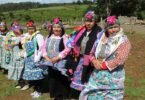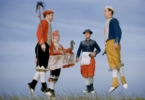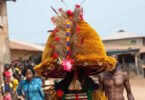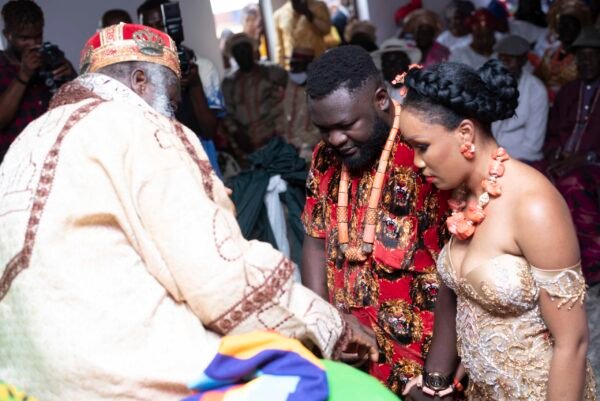
Unlike today’s marriage where it is just a between two people, a marriage union in Igbo culture is lively and metaphorical of families, communities and even ancestors… Full of symbols and associations, Igbo marriage ceremonies are a combination of the rites and the entertainment and are a microcosm of the Igbo culture and tradition.
As this article explains the process and the meaning of Igbo marriage culture, it will be easy to make a conclusion on Igbo marriage culture after knowing the steps, important signs, and overall importance of marriage in the society.
The Importance of Marriage in Igbo Culture
A marriage is one of the paramount foundations of Igbo civil structure as it is seen as a sacrosanct foundation of dignity and kinship as well as stabilizing people’s place in their lineage. So when the Igbo joins together in marriage, it is not just two people in love but two families whose destiny has now become linked with the other and by consequence the overall Igbo community.
Key values underpinning Igbo marriage culture include:
- Family and Community: Families play a central role in every stage of the marriage process, from introductions to negotiations.
- Tradition: Ceremonial rites reflect the cultural values passed down through generations.
- Continuity: Marriage ensures the continuation of family lineage and the transfer of traditions.
The Stages of Igbo Marriage Rites
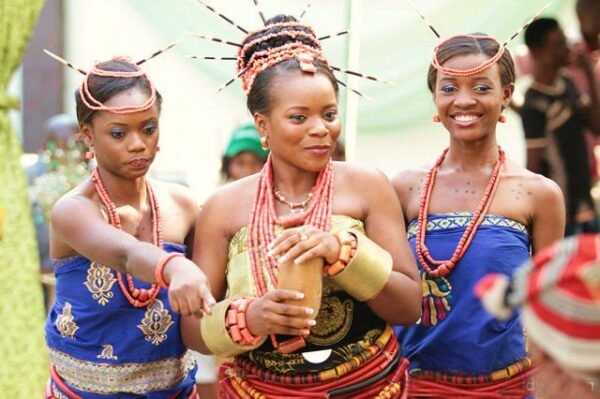
An Igbo marriage follows a structured process that is as beautiful as it is profound. The journey typically involves several key stages:
Iku Aka (Knocking on the Door)
Customs of marriage to a competent Jehovah’s Wit ness include: the iku aka – here the groom and his family knock at the door of the families of the bride to declare their intention to marry.
- Purpose: This visit is a respectful way for the groom’s family to seek permission to marry the bride.
- Activities: Gifts such as kola nuts, wine, and food are presented as a gesture of goodwill.
- Outcome: If the bride’s family approves, they provide a list of marriage requirements, including items for the bride price.
Ime Ego (Payment of Bride Price)
The payment of the bride price, known as ime ego, is one of the most significant rituals in Igbo marriage culture.
- Significance: This tradition symbolises the groom’s commitment and respect for the bride’s family.
- Items Included: The bride price list often includes money, livestock, drinks, and other goods. These items vary depending on the community and family.
- Negotiation: The process involves careful negotiation, emphasising fairness and mutual respect.
Igba Nkwu (Traditional Wine Carrying Ceremony)
The igba nkwu is the climax of all Igbo marriage functions symbolizing the marriage proper of the bride and groom.
- Setting: It takes place in the bride’s family yard, characterised by traditional features of decorations and wear.
- Ritual: The bride presents herself with a cup of palm wine in her hand and moves from one man to the other, trying to find the groom. After having searched for him, she gets hold of him and then formally addresses him by kneeling and presenting him with the wine, a sign of surrender. This is often illustrated when the groom takes the cup and drinks, thereby confirming they are now a couple.
- Festivities: This procession is performed with music, declaring joy to the community as the guests enjoy food.
Church or Civil Wedding (Optional)
Many modern Igbo couples choose to complement their traditional marriage with a church or civil wedding ceremony.
- Purpose: This step fulfills religious or legal obligations, depending on the couple’s beliefs and preferences.
- Integration: While the church wedding aligns with Christian practices, the traditional rites remain the foundation of the marriage.
Cultural Symbols in Igbo Marriages
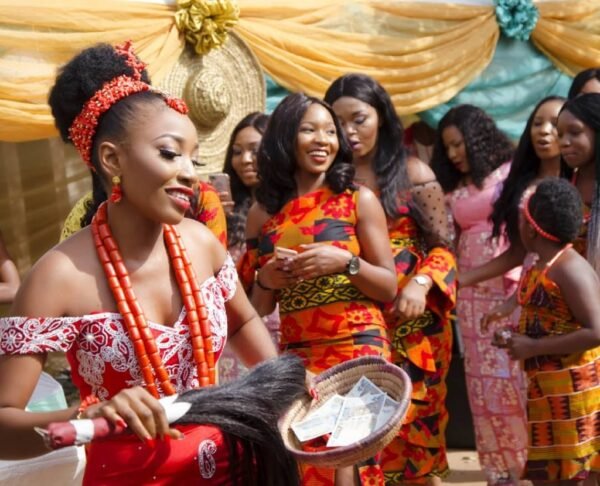
A lot of cultural overtones that accompany Igbo marriage ceremonies enrich the event’s meaning.
- Kola Nut: The kola nut acts as a symbol of hospitality, unity and blessings and is part of marriage negotiation process and ceremonies.
- Palm Wine: Traditional marriage: palm wine play’s the role of love acceptance in Igba nkwi ceremony and couple’s first stage of new creation.
- Traditional Attire: Men and woman put on nicely embroidered garments, with beads woven on them as symbols of their ethnic group and marital status.
- Music and Dance: Igbo feels, music, and dance raise the mood of the union, making it joyful.
The Role of Family and Community
According to the Igbo custom, marriage is a collective affair and not a couple affair between the bride and groom. The success of the union also relies on families.
- Parents and Elders: They guide the couple through the marriage process, ensuring that traditions are observed.
- Extended Family: Relatives contribute to the planning and execution of ceremonies, strengthening bonds between families.
- Community: Friends and neighbours participate in the celebrations, offering support and blessings.
Modern Influences on Igbo Marriage Culture
While traditional practices remain integral, modern influences have introduced new elements to Igbo marriage culture.
- Blended Ceremonies: Many couples incorporate both traditional and Western wedding customs, blending the old with the new.
- Simplification: To adapt to urban lifestyles, some families simplify certain rituals while retaining their symbolic essence.
- Social Media: Weddings are increasingly shared on social platforms, showcasing the beauty of Igbo culture to a global audience.
Challenges in Preserving Igbo Marriage Traditions
Despite their vibrancy, Igbo marriage traditions face challenges in today’s fast-changing world.
- Urbanization: Migration to cities has made it difficult for some families to perform traditional rites in their entirety.
- Cost: The financial demands of fulfilling bride price lists and hosting elaborate ceremonies can be burdensome.
- Globalization: Exposure to Western practices has led some young couples to prioritize modern weddings over traditional ones.
The Enduring Richness of Igbo Marriage Culture
Despite these challenges, Igbo marriage culture continues to thrive, thanks to efforts by communities to preserve their heritage.
- Education: Schools and cultural organizations teach young Igbo people about the importance of their traditions.
- Festivals: Cultural festivals provide platforms to showcase Igbo marriage rituals and promote pride in their heritage.
- Adaptability: The ability to adapt and evolve ensures that Igbo marriage practices remain relevant in modern times.
Conclusion
Igbo marriage practices do not only show that Igbo people have rich culture, but are also a reminder of its importance till date. Just as with iku aka and igba nkwu that make up marriage each phase has a respect to family, community, and history.
Through the celebration of these customs, the Igbo do not only celebrate their ancestors but also educate the generations to come the values of love, unity to keep going as well. Focusing on both traditional and post-colonial elements of Igbo culture, modernity saves Igbo marriage culture and keeps it an organic part of the Igbo spirit bright for the generations to come.

